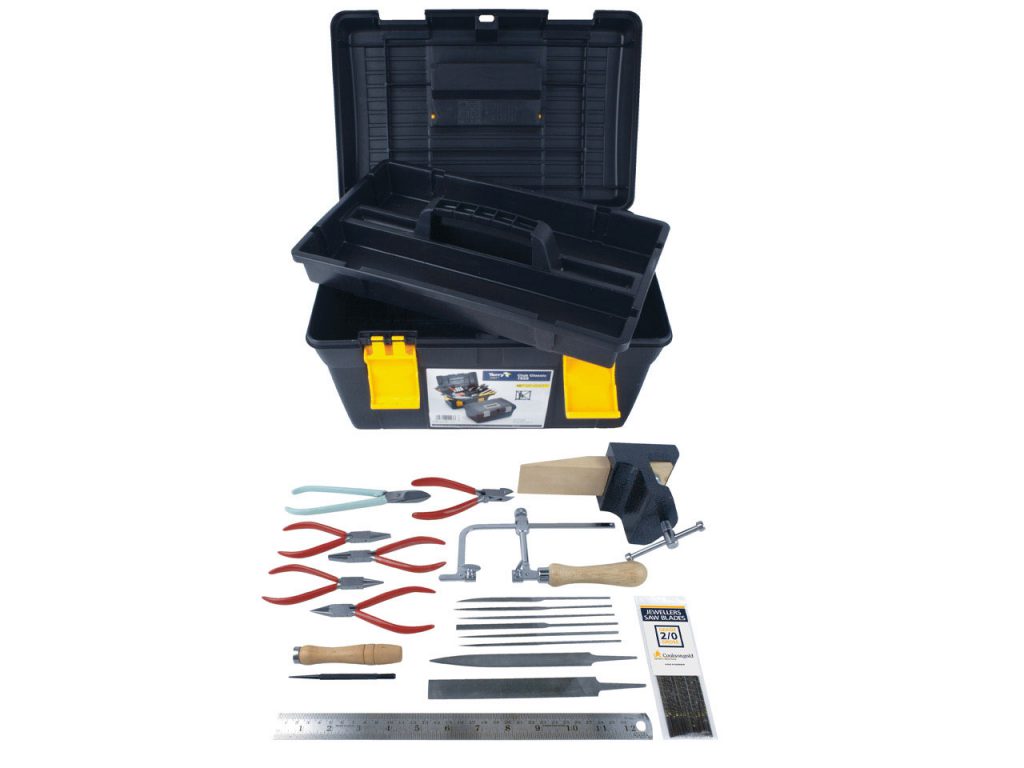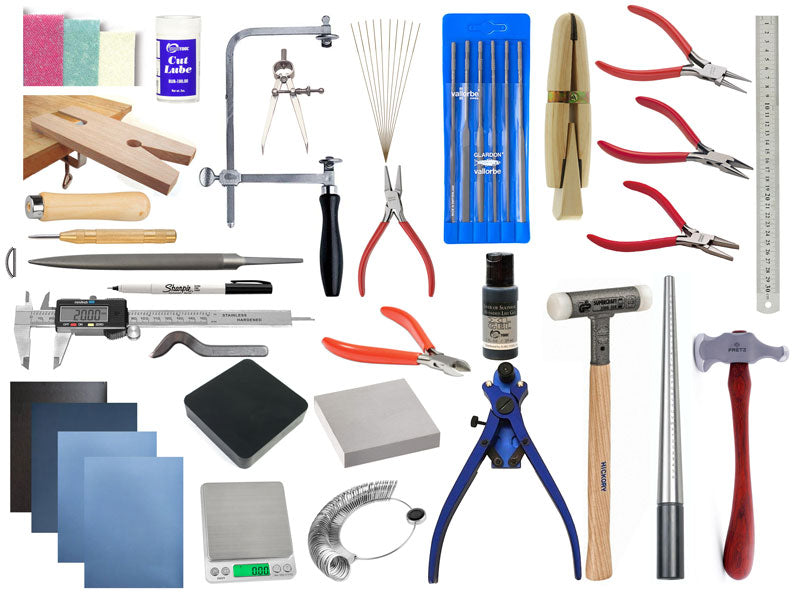A Guide to Jewellery Tools in Auckland: Equipping the Creative Spirit
Related Articles: A Guide to Jewellery Tools in Auckland: Equipping the Creative Spirit
Introduction
In this auspicious occasion, we are delighted to delve into the intriguing topic related to A Guide to Jewellery Tools in Auckland: Equipping the Creative Spirit. Let’s weave interesting information and offer fresh perspectives to the readers.
Table of Content
A Guide to Jewellery Tools in Auckland: Equipping the Creative Spirit

Auckland, a vibrant city known for its artistic spirit, boasts a thriving jewellery scene. Whether you are a seasoned professional, a budding enthusiast, or simply seeking to explore the intricate world of jewellery creation, access to the right tools is paramount. This comprehensive guide explores the diverse landscape of jewellery tools available in Auckland, providing insights into their functionalities, benefits, and where to acquire them.
The Essential Toolkit: A Foundation for Artistic Expression
A well-stocked jewellery toolkit is the cornerstone of any creative endeavor. It empowers individuals to bring their designs to life, fostering a sense of accomplishment and artistic fulfillment. Here’s a breakdown of essential tools, their applications, and their significance:
1. Cutting and Shaping Tools:
- Jewellers’ Saw: This versatile tool is used to cut metal, plastic, and other materials, enabling the creation of intricate shapes and designs. Its fine blades, available in various sizes, allow for precise cuts.
- Files: Used to shape and smooth metal, files come in different shapes and grits, each catering to specific tasks. Coarse files are ideal for rough shaping, while fine files refine edges and create smooth surfaces.
- Sandpaper: Essential for polishing and refining surfaces, sandpaper is available in various grits, ranging from coarse for initial smoothing to fine for achieving a high-gloss finish.
- Bench Shears: These heavy-duty shears are designed for cutting metal, offering a clean and precise cut. Different sizes and styles cater to specific needs, from cutting delicate wire to thicker metal sheets.
2. Measuring and Marking Tools:
- Calipers: These tools are used to measure the thickness, diameter, and depth of objects with precision. Digital calipers offer digital readings, while analog calipers rely on manual measurements.
- Dividers: Used to transfer measurements and mark lines, dividers are essential for creating symmetrical designs and precise spacing.
- Scriber: This tool is used to mark metal surfaces, allowing for accurate cutting and shaping.
- Rulers: Essential for measuring and marking straight lines, rulers are available in various sizes and materials, catering to different needs.
3. Forming and Shaping Tools:
- Hammers: Used for shaping and flattening metal, hammers come in various sizes and weights, each suited for specific tasks. Ball-peen hammers are used for rounding edges, while flat-faced hammers are ideal for flattening metal.
- Anvils: Used in conjunction with hammers, anvils provide a stable surface for shaping metal. They come in various sizes and shapes, each catering to specific forming techniques.
- Pliers: Essential for gripping, bending, and shaping metal, pliers come in a wide variety of styles, each serving a specific purpose. Needle-nose pliers are ideal for delicate work, while flat-nose pliers are suited for bending wire.
- Mandrels: These round rods are used to shape and form wire, creating rings, bracelets, and other jewellery components. Mandrels come in various sizes, allowing for a wide range of diameters.
4. Soldering and Joining Tools:
- Soldering Iron: This tool uses heat to melt solder, joining metal components. Soldering irons come in various wattages, with higher wattages being suitable for thicker metal pieces.
- Solder: A metal alloy used to join metal components, solder comes in various types, each with a specific melting point and properties.
- Flux: A chemical compound used to clean metal surfaces and prevent oxidation during soldering. Flux ensures a strong and reliable bond.
- Soldering Blocks: These blocks provide a heat-resistant surface for soldering, preventing damage to the workbench. Soldering blocks are often made of materials like ceramic or graphite.
5. Finishing and Polishing Tools:
- Rotary Tools: These versatile tools, powered by electricity or air, can be used for a variety of finishing tasks, including polishing, sanding, and engraving. Rotary tools come with a range of attachments, enabling different tasks.
- Buffing Wheels: Used for polishing metal surfaces, buffing wheels come in various sizes and materials, each suited for different polishing tasks.
- Polishing Compounds: Used in conjunction with buffing wheels, polishing compounds are available in different grades, ranging from coarse for initial polishing to fine for achieving a high-gloss finish.
- Burnishing Tools: These tools are used to create a smooth, shiny finish on metal surfaces by pressing a hard tool against the surface.
Where to Find Jewellery Tools in Auckland:
Auckland offers a variety of options for sourcing jewellery tools, catering to both professional and amateur craftspeople:
- Jewellery Supply Stores: These specialized stores offer a wide range of jewellery tools, materials, and supplies, catering to the specific needs of jewellery makers.
- Online Retailers: Online retailers provide convenient access to a vast selection of jewellery tools, often with competitive prices and shipping options.
- Craft Stores: General craft stores typically offer a basic selection of jewellery tools, suitable for beginners and hobbyists.
- Secondhand Shops: Vintage jewellery tools can be found at secondhand shops, offering unique options at affordable prices.
Choosing the Right Tools for Your Needs:
The choice of jewellery tools depends on the specific projects you plan to undertake, your skill level, and your budget. Here are some factors to consider:
- Project Complexity: More intricate projects require a wider range of tools.
- Skill Level: Beginners may start with basic tools, gradually expanding their toolkit as their skills progress.
- Budget: Tools range in price, from affordable options for hobbyists to professional-grade tools for seasoned craftspeople.
Benefits of Investing in Jewellery Tools:
Investing in jewellery tools brings numerous benefits, fostering creativity, promoting self-expression, and enhancing the quality of your work:
- Enhanced Creativity: Having the right tools at your disposal empowers you to explore new designs and techniques, expanding your creative horizons.
- Increased Skill: Regular practice with tools improves your dexterity, precision, and overall craftsmanship.
- Improved Quality: High-quality tools produce better results, leading to professional-looking jewellery pieces.
- Personal Fulfillment: Creating jewellery from scratch is a rewarding experience, bringing a sense of accomplishment and satisfaction.
FAQs About Jewellery Tools in Auckland:
1. What are the most essential tools for a beginner?
For beginners, a basic toolkit should include a jeweller’s saw, a set of files, sandpaper, a pair of pliers, a hammer, an anvil, a soldering iron, solder, flux, and a rotary tool.
2. Where can I find affordable jewellery tools in Auckland?
Craft stores, secondhand shops, and online retailers often offer affordable options for jewellery tools.
3. Are there any classes or workshops for learning to use jewellery tools?
Yes, various workshops and classes are available in Auckland, offering instruction on different jewellery techniques and tool usage.
4. What safety precautions should I take when using jewellery tools?
Always wear safety glasses, gloves, and a dust mask when using jewellery tools. Use caution when handling sharp tools and avoid using them near flammable materials.
5. How do I maintain and care for my jewellery tools?
Regular cleaning and maintenance are crucial for preserving the longevity and performance of your tools. Clean tools after each use, lubricate moving parts, and store them in a dry, organized manner.
Tips for Using Jewellery Tools:
- Start with simple projects: Begin with basic designs and gradually increase the complexity of your projects as your skills develop.
- Practice regularly: Consistent practice improves your dexterity, precision, and overall craftsmanship.
- Take your time: Rushing can lead to mistakes and accidents. Work carefully and methodically, focusing on each step.
- Learn from others: Attend workshops, read books, and seek guidance from experienced jewellery makers to enhance your skills.
- Experiment: Don’t be afraid to try new techniques and materials. Experimentation is key to discovering your own unique style.
Conclusion:
The world of jewellery tools in Auckland is a treasure trove of possibilities, empowering individuals to unleash their creativity and explore the intricate art of jewellery making. Whether you are a seasoned professional or a curious beginner, the right tools provide a foundation for artistic expression, fostering a sense of accomplishment and personal fulfillment. By understanding the diverse functionalities and benefits of these tools, you can embark on a journey of creative exploration, crafting stunning pieces that reflect your unique style and artistic vision.








Closure
Thus, we hope this article has provided valuable insights into A Guide to Jewellery Tools in Auckland: Equipping the Creative Spirit. We hope you find this article informative and beneficial. See you in our next article!